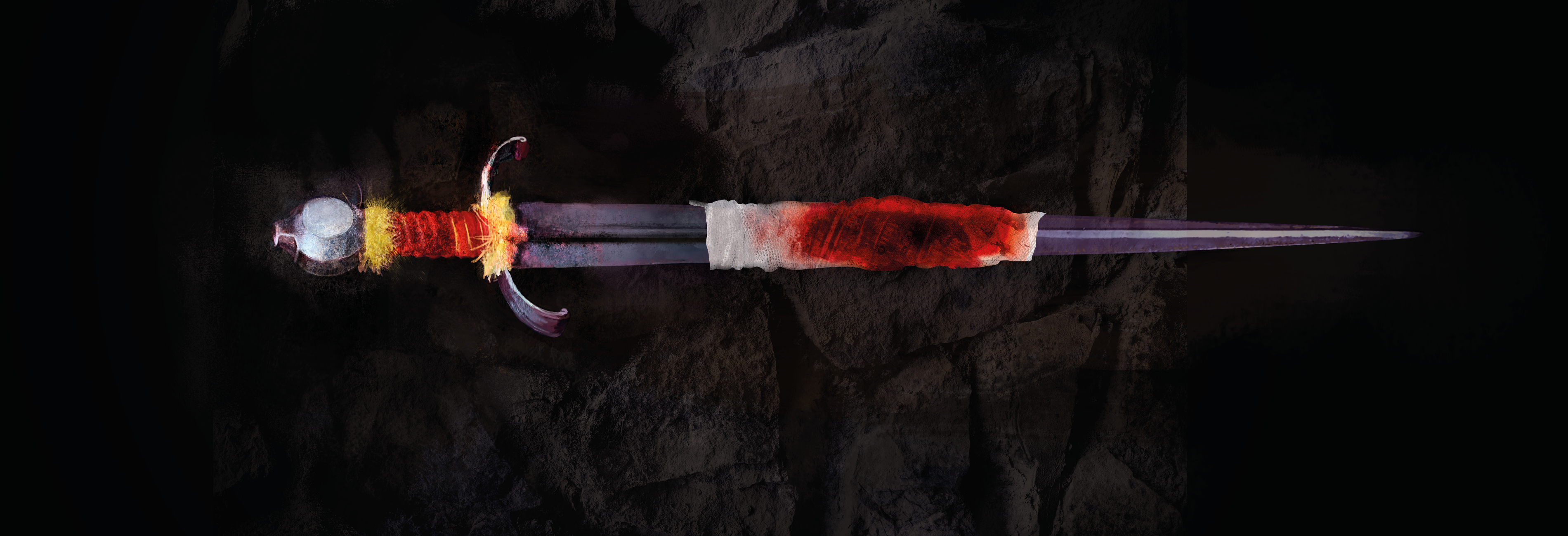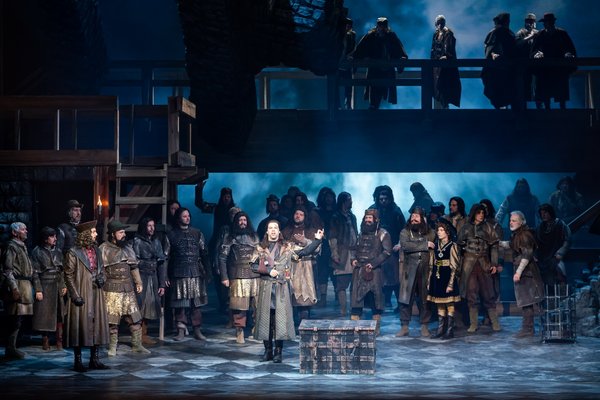
HUNYADI LÁSZLÓ
17 March 2024, 11 a.m.
In Brief
Opera in four acts, in three parts, in Hungarian, with Hungarian and English subtitles
János Hunyadi is responsible for the tolling of bells around the world; Mátyás Hunyadi is the hero of a string of folk tales; László Hunyadi inspired “only” an opera. An opera that is actually about his younger brother, the last great King of Hungary, or at least the events leading up to his rule. However, our current aim is not to raise László from the dead, who was the reason for and explanation to why Mátyás Hunyadi ended up on the throne. True that the original score, heard for the first time in almost ninety years, provides an excellent opportunity to play the part of the knight, executed while he was still young. The purpose of this production is to stage a piece authentic to the original and to use it to showcase the Opera’s artistic and technical possibilities.
The production of this work was created based on the critical edition series Ferenc Erkel Operas from the Department of Hungarian Music History of the Institute for Musicology of the Research Centre for the Humanities.
Details
- Location
- Hungarian State Opera
- Date
- March 17, 2024
- Start time
- 11 a.m.
- End time
- 3 p.m.
Synopsis
Act I
The young László Hunyadi, the eldest son of the dead hero, János, is warned by his soldiers summoned to Nándorfehérvár in the presence of his younger brother, Mátyás that he is in deadly danger, but he receives the arriving King László V as a humble subject of his. However, the foreign mercenaries are not allowed in the castle, and that serves as a reason for the royal uncle, regent Ulrik Cillei, a bitter enemy of the Hunyadis, to get permission to kill him. But Hunyadi’s supporters are informed about his plan by Rozgonyi, whose role is not clear, and they kill the schemer. The startled king apparently forgives this deed.
Act II
The widowed Erzsébet Szilágyi is worried for her son László in Temesvár, seeing a vision of him being handed to the executioner. The king makes a solemn promise to fully forgive them, and makes the two Hunyadi sons his honorary brothers. At the same time, he takes a liking to László’s fiancée, the beautiful Mária Gara, and the girl’s father instantly recognizes the ignoble opportunity in this.
Act III
Gara convinces the king yearning for Mária to get rid of László Hunyadi. They arrest him at the engagement party of László and Mária, interrupting the celebration.
Act IV
Mária urges her prisoner lover to escape, but he trusts the king’s promise. Eventually, László Hunyadi is bound for the scaffold, and so Erzsébet Szilágyi has to watch as her nightmare vision comes true. The executioner strikes three times, still the innocent youth stays alive. Instead of mercy, the palatine gives the order to strike him yet again, finally beheading Hunyadi.
Gallery
Reviews
"In his production general director, Szilveszter Ókovács returned to the so-called original version, which had not been performed for ninety years, containing all arias, dance sequences, ensembles, and even the overture, which Erkel himself added to the 1844 version, in order to give the complicated story more credibility. In addition, the director obsreved the period in terms of staging and performing tradition. Consequently, along with conductor Balázs Kocsár, visual designer Krisztina Lisztopád, choreographer Tamás Solymosi and chorus director Gábor Csiki, he staged a production on the stage of the Opera House that would make Franco Zeffirelli proud."
Wolfgang Sandner, Frankfurter Allgemeine Zeitung
